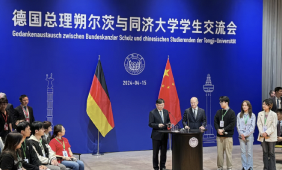In recent years, many countries have begun exploring the pharmacological effects of the cannabis plant and the economic benefits of cannabis liberalization. For example, Laos’ neighbor Thailand has cautiously moved forward with legalizing both cannabis and hemp for medical purposes and to boost the Thailand’s economy. The authorities in Laos are likewise looking into the possibility of opening up some of the country’s strict prohibitions on CBD and medical cannabis. However, little has been done so far, and consumption, production, and commercial use of cannabis-including cultivation and commercialization of hemp-related products-remain strictly prohibited. Those who market products related to hemp or CBD in Laos currently risk criminal or civil liabilities.
Legal Landscape and Enforcement Risks
The cannabis plant (Cannabis sativa L.) is known mainly for producing two compounds: tetrahydrocannabinol (THC), which is a psychoactive substance, and cannabidiol (CBD), a nonpsychoactive compound with several beneficial pharmacological effects. A cannabis plant with a relatively high amount of THC exerting psychoactive effects is known as “marijuana” (Cannabis sativa L. subsp. indica), while a cannabis plant with very little THC is considered “hemp” (Cannabis sativa L. subsp. sativa).
Marijuana and hemp have not been defined under Lao law, and the Lao authorities usually take the approach that marijuana is synonymous with the cannabis plant, regardless of the percentage of THC in the plant. The Law on Narcotics No. 10/NA, dated December 25, 2007, prohibits narcotics from being used in Laos. The Decree on the Implementation of the Law on Narcotics No. 076/PM, dated March 20, 2009, declares the “cannabis plant” a narcotic-producing plant, prohibiting its cultivation and possession, and officially places THC on the country’s list of prohibited narcotics. As CBD is extracted from the cannabis plant, products containing the compound are therefore likely to be prohibited as well.
The Penal Code No. 26/NA, dated May 17, 2017, prohibits all activity related to marijuana (here meaning all cannabis) cultivation, trafficking, and possession, setting punishment for violations at three months’ to life imprisonment and fines of LAK 500,000-200 million (approx. USD 52-21,200), depending on the nature of the goods and the activity.
Outlook for Cannabis Liberalization in Laos
In 2019, the Lao government created an ad hoc committee to determine whether the legalization of hemp cultivation in Laos for medicinal use would be feasible, and whether the country might benefit from such a policy. In this vein, the country’s authorities have allowed some local companies to grow hemp in very specific zones under pilot programs, while maintaining the strict overall prohibition on cultivation and commercialization of hemp-related products.
This change in the authorities’ outlook on hemp-related products may evidence their interest in diversifying Laos’ sources of income. The country’s efforts to expand its market potential is not surprising, given that it has developed trusted labels to promote the “made in Laos” brand, and has registered geographical indications (e.g, Bolaven Coffee, Khao Kai Noy rice) to penetrate foreign markets. The market potential of hemp, the future of the CBD market, and the possible impact of these products may encourage the Lao authorities to liberalize cannabis, or at least production, extraction, and commercial use of CBD in Laos-the economic benefits of which could also ease COVID-19’s adverse effects on the Lao economy.
Globally, prospects for cannabis and CBD-related products are bright, with various countries (such as Canada and the U.S.) liberalizing regulations for cannabis and CBD-related products. In Europe, pressured by the EU Court of Justice’s recent decision, and region-wide advocacy for liberalizing restrictions and commercializing CBD products, a more tolerant approach to CBD products may soon be adopted in order not to contravene the principle of the free movement of goods in the European Single Market.
Meanwhile, in Laos, this global trend for recognizing the beneficial effects of cannabis, and specifically CBD, may incentivize the country to encourage development of high-quality products containing CBD and revise its legal framework for cannabis and CBD. Laos’ manufacture of these products could potentially bring further economic growth to the country through direct revenue, investment in research and development, establishment of scientific infrastructure, and the development of local expertise on the subject-all of which could foster sustainable foreign direct investment in the future.
The content of this article is intended to provide a general guide to the subject matter. Specialist advice should be sought about your specific circumstances.
















